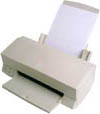The Infinitive
Recognize an infinitive when you find one.
To sneeze, to smash, to cry, to shriek, to jump, to dunk, to read, to eat, to slurp—all of these are infinitives.
An infinitive will almost always begin with to followed by the simple form of the verb, like this:
To + Verb = Infinitive
Important Note: Because an infinitive is not a verb, you cannot add s, es, ed, or ing to the end. Ever!
Infinitives can function as nouns, adjectives, or adverbs.
Read these examples:
To sleep is the only thing that Eli wants after his double shift waiting tables at the neighborhood café.
To sleep = noun (subject of the linking verb is).
No matter how fascinating the biology dissection is, Emanuel turns his head and refuses to look.
To look = noun (direct object for the action verb refuses).
Wherever Melissa goes, she always brings a book to read in anticipation of boring conversation or a long wait.
To read = adjective (modifying book).
Richard braved the icy rain to throw the smelly squid eyeball stew into the apartment dumpster.
To throw = adverb (explaining why Richard braved the inclement weather).
Recognize an infinitive even when it is missing the .
An infinitive will almost always begin with to. Exceptions do occur, however.
For example, an infinitive will lose its to when it follows these verbs: feel, hear, help, let, make, see, and watch. Between the verb and the infinitive, you will find a direct object.
This is the pattern:
Special Verb + Direct Object + Infinitive - To
Here are examples:
As soon as Theodore felt the rain splatter on his hot, dusty skin, he knew that he now had an excuse to return the lawn mower to the garage.
Felt = special verb; rain = direct object; splatter = infinitive minus the to.
When Danny heard the alarm clock buzz, he pressed the snooze option and burrowed under the covers for nine more minutes of sleep.
Heard = special verb; alarm clock = direct object; buzz = infinitive minus the to.
Although Professor Ribley spent an extra class period helping us understand logarithms, we still bombed the test.
Helping = special verb; us = direct object; understand = infinitive minus the to.
Because Freddie had never touched a snake, I removed the cover of the cage and let him pet Squeeze, my seven-foot python.
Let = special verb; him = direct object; pet = infinitive minus the to.
Since Jose had destroyed Sylvia's spotless kitchen while baking chocolate-broccoli muffins, she made him buy her an expensive dinner out.
Made = special verb; him = direct object; buy = infinitive minus the to.
I said a prayer when I saw my friends climb aboard the Kumba, a frightening roller coaster that twists and rolls like a giant sea serpent.
Saw = special verb; my friends = direct object; climb = infinitive minus the to.
On the advice of her therapist, Rachel went to the airport to watch passenger planes take off and land, but this exercise did little to help her fear of flying.
Watch = special verb; passenger planes = direct object; take, land = infinitives minus the to.
An infinitive can also lose its to when it is the second (or third, fourth, etc.) item in a series. For a series of infinitives, you need only the first to. The rest are unnecessary.
Read this example:
To win Jasmine’s approval, Joshua agreed to wash the dog, vacuum the house, and clean the gutters.
To wash, vacuum (minus the to), and clean (minus the to) = infinitives.
To split or not to split?
The general rule is that no word should separate the to of an infinitive from the simple form of the verb that follows. If an adverb does come between these two components, a split infinitive is the result.
Consider these two examples:
Sara hopes to quickly finish her chemistry homework and return to the more interesting Stephen King novel that she had to abandon.
Sara hopes to finish her chemistry homework quickly and return to the more interesting Stephen King novel that she had to abandon.
Which version is correct? That depends on whose opinion you consult!
Some English teachers believe that thou shall not split infinitives was written on the stone tablets that Moses carried down from the mountain. Breaking the rule, in their eyes, is equivalent to killing, stealing, coveting another man's wife, or dishonoring one's parents. If you have this type of English teacher, then do not split infinitives!
Other folks, however, consider the split infinitive a construction, not an error. They believe that split infinitives are perfectly appropriate, especially in informal writing.
In fact, an infinitive will occasionally require splitting, sometimes for meaning and sometimes for sentence cadence. One of the most celebrated split infinitives begins every episode of Star Trek: "To boldly go where no one has gone before ...." Boldly to go? To go boldly? Neither option is as effective as the original!
When you are making the decision to split or not to split, consider your audience. If the piece of writing is very formal and you can maneuver the words to avoid splitting the infinitive, then do so. If you like the infinitive split and know that its presence will not hurt the effectiveness of your writing (or grade), leave it alone.
©1997 - 2025 by Robin
L. Simmons
All Rights Reserved.
